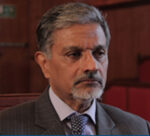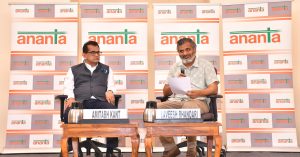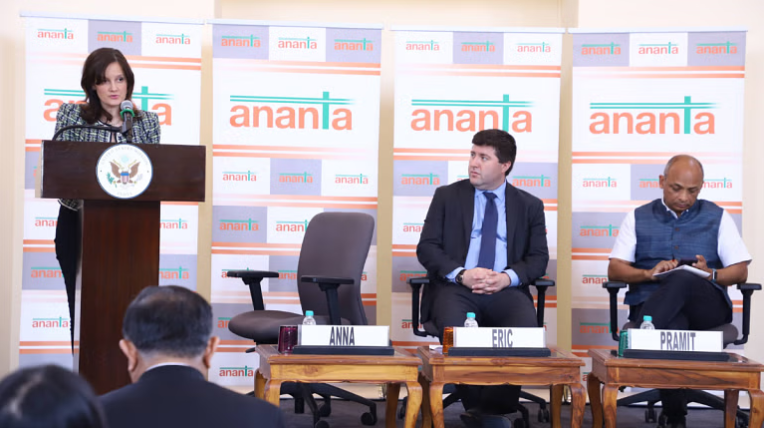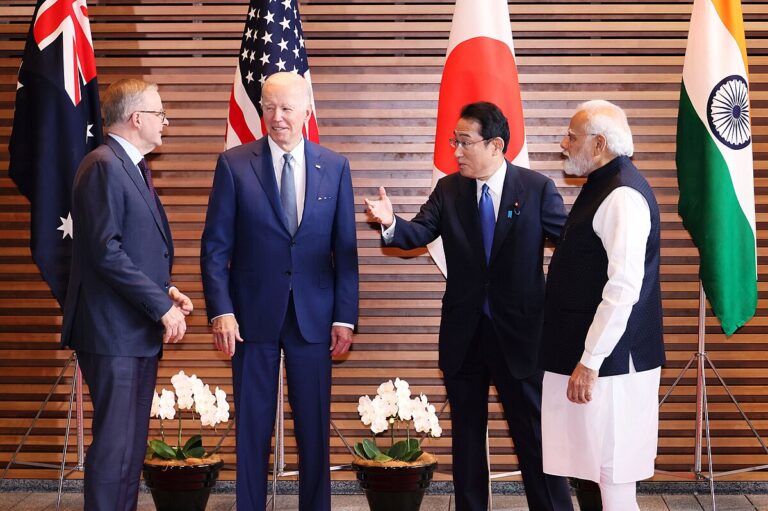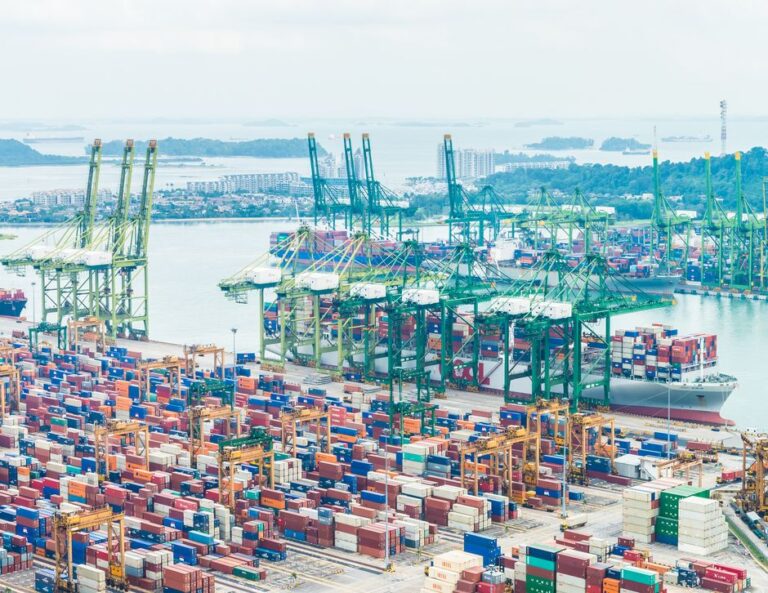HIGHLIGHTS
● COVID 19
● Political Developments
● Economic Developments
● Focus India-LAC
COVID 19
The region continued to reel from successive – second and third – waves of infection. Brazil had almost 15 million cases, with over 400,000 deaths by end April. Chile was the fastest to vaccinate almost half its population but continued to see case rates cross 1 million (of a population of 19.2 million), the death toll over 25,000 and 86% of its population under lockdown in March. Mexico acknowledged that coronavirus-related deaths may exceed 321,000, a nearly 60 percent increase from the official tally. 120,000 “excess” deaths were previously unaccounted for due to lack of testing and unreported cases. In Paraguay infections soared and the government seemed to have lost control – half the cabinet had to resign. Colombia, facing a third wave with 10,000 daily infections, went into weekend lockdowns. Several countries closed their borders to neighbours. All governments scrambled to procure vaccines from any possible source.
Political Developments
On 11 April Ecuador elected conservative banker Guillermo Lasso as President in a runoff round. Lasso obtained 52.50 percent of the votes, five points more than his rival Andres Arauz, of former president Rafael Correa’s Union of Hope party. With this an important chapter in Ecuador’s left-wing politics comes to a close – for now at least. Ecuador politics has been torn between left and right for decades. Correa, an economist educated in Chicago and married to a Belgian – came to power in 2007 and changed the political paradigm. His presidency however, became controversial domestically, because of his high-handed attitude and reliance on the armed forces, and internationally because of his alliance with Venezuela’s Chavez and other left-wing regimes in the region. His Vice President and successor, Lionel Moreno changed the dynamic and was more business and west-friendly. Another surprise was indigenous politician Yaku Perez, who narrowly missed the runoff with Lasso (himself well behind Arauz in the first round), partly because he called for voters to cast blank or ‘null’ votes – over 16 percent of the total. Lasso is expected to intensify the business-friendly policies of Moreno. Ecuador is rich in hydrocarbons with 8 billion barrels of reserves – and an OPEC member till a few years ago – but has held back exploration in ecologically sensitive regions. Lasso is expected to invite more private sector participation in upstream and downstream sectors.
On 23 March, in a 3-2 split ruling, the Supreme Court of Brazil decreed that Federal Judge Sergio Moro’s sentencing of former President Lula (2003-2010) on corruption charges in the Lava Jato (‘Car Wash’) case was biased. All decisions in the case of the Guarujá triplex apartment, made by Moro were null because he “showed partiality in his conduct.“ Lula had been convicted of receiving the apartment as a bribe from the construction company OAS, implicated in bribes paid in exchange for contracts with Brazil’s national oil company Petrobras. In the light of this new ruling, the entire process now goes back to a federal court in Brasilia. Moro had been accused by Lula’s supporters of having doctored the investigation to ensure Lula’s conviction. He had been appointed Law Minister by President Bolsonaro, but resigned a year later due to differences with the President. The ruling was cataclysmic. Lula – an icon of the left in Brazil and Latin America – had been barred from seeking re-election in 2018 because of his conviction, leading to the surprise victory of the controversial right-wing President Jair Bolsonaro. He can, in 2022, challenge Bolsonaro, whose popularity has declined mainly due to Brazil’s rising COVID infections and deaths.
In March Bolsonaro caused yet another controversy, sacking his Foreign Minister, Ernesto Araujo, considered a political liability by the Congress due to his outspoken views, mainly on China, and his identification with the Trump administration. Five other Ministers went, including the Defence Minister, a general who differed with Bolsonaro on the pandemic and other issues. The sackings were followed by the resignations of the commanders of the army, navy and air force. Bolsonaro, himself a retired army captain, has had a close and public relationship with the armed forces – his Vice President is from the army – who are believed to command influence on the administration, perhaps provoking Bolsonaro to show who is in charge. Meanwhile COVID politics continued between Bolsonaro and several state governors, especially Joao Doria of Sao Paulo, a presidential contender in 2022, who has pushed locally made vaccines and restrictions on movement, while Bolsonaro labelled measures like lockdowns a “dictatorship”. The regulatory agency ANVISA held up Russia’s Sputnik V vaccine, citing ‘lack of consistent and reliable data’, prompting legal action by Russia.
In March Venezuela’s armed forces carried out airstrikes against ex-guerillas of Colombia’s FARC rebel group. The clashes, the most serious in decades with at least 12 Venezuelan soldiers dead, raised concern in an area where Colombia hosts most of the 1.8 million Venezuelan refugees. Colombia’s Foreign Minister Claudia Blum claimed the crisis was “…another consequence of Venezuela’s multidimensional crisis, provoked by the illegitimate regime of Nicolás Maduro…the regime has long tolerated and protected different illegal armed groups involved in drug trafficking and other illegal economies.” FARC and ELN guerilla groups from Colombia reportedly get safe haven in Venezuela, which has to contend with their activities in narcotics, mining, etc. Their presence, among others, led the US last year to indict President Maduro and several senior officials of his administration for drug trafficking and other crimes against the US.
On 13 March former President of Bolivia, Jeanine Anez was placed under arrest along with two of her ex Ministers and ex-military officers on charges of ‘sedition and terrorism’ linked to the 2019 political crisis in which former President Evo Morales was ousted from the presidency after he ‘won’ an election that was considered fraudulent by the opposition. Anez, the head of Bolivia’s Senate, assumed the presidency in October 2019, after what was then seen as a military-backed putsch. Anez and her backers, from the more prosperous and business-friendly east, lost no time in reversing many of the leftist policies of Morales, who had to spend over a year in exile, first in Mexico then Argentina. He returned earlier this year in triumph after the victory of his former Vice President and party member Luis Arce in the 2020 election. The political fortunes of the ruling MAS party suffered a setback in April when it lost key gubernatorial elections in four states.
Raul Castro handed over as Secretary General (head) of the Communist Party of Cuba at the Eighth Congress of the 700,000-member party. 89-year old Raúl took over the reins of government when his brother Fidel fell ill in 2006, and the party in 2011. In 2018, Raúl stepped down as president and his handpicked successor, Miguel Diaz-Canel, took over the management of the government. On 20 April Diaz-Canel succeeded him as party chief. Raúl tried to reform the economy, allowing small private businesses, wider use of internet, relaxations for foreign investment, currency reform, etc. The 2015 restoration of relations with the US under President Obama, and subsequent lifting of several sanctions helped, but these were rolled back by President Trump. Cuba’s refusal to dilute its socialist orientation and the command of the communist party has also not helped. Raúl in fact declared that though he was retiring, he would retain “a foot in the stirrup”. With his departure, for the first time since 1959, Cuba will not be led by a Castro. Raul’s son, Alejandro, is a colonel in Cuba’s Interior Ministry and his daughter, Mariela runs a government center promoting LGBTQ rights. His ex-son-in-law, Gen. Luis Alberto Rodríguez López-Calleja, heads a military conglomerate of hotels, marinas and infrastructure projects, and has been elevated to the Politburo, along with Prime Minister (a post recreated after 40 years in 2019) Manuel Marrero Cruz. None of Fidel’s offspring hold positions of authority.
Economic Developments
In late March, Argentina’s Vice President, Cristina Kirschner declared after tough negotiations by her Economy Minister Martin Guzman, that Argentina was unable to repay its $45 billion debt to the IMF. Widely seen as the power behind President Alberto Gonzalez, Cristina was President during the previous troubled decade, and the wife of former President Nestor Kirschner, who had repaid loans to the IMF earlier this century. After successfully renegotiating its $65 billion international debt last year, the country is betting on an export bonanza of soya and wheat and a drawdown of $4 billion from IMF to see this year through. But it will have to pay $18 billion to the IMF next year, and another $19 billion in 2023. Reforms such as cutting back populist subsidies and the pension system, attempted by President Alberto Fernandez and the Finance Minister, have reportedly been vetoed by Cristina. Argentina suffered its biggest one-year drop in GDP – 9.9% in 2020 – since its 10.9 percent contraction in 2002, according to the national statistical institute, after shrinking 2.5 percent in 2018 and 2.2 percent in 2019. COVID aggravated the chaotic conditions, with the peso devalued and poverty levels rising.
China’s ambitious proposal to connect the Atlantic and Pacific oceans though the South American continent (Brazil coast to Peru coast) are stalled for various reasons. Chile and Argentina, however are moving forward with Chinese financial support to create what may become a bioceanic railway cutting through the Southern Cone. The Southern Trans-Andean Railway network will reportedly connect Argentina and Chile through a bimodal system (truck + train) that crosses the 33rd parallel and links the Atlantic coast of Argentina with the Pacific Ocean ports of Chile. The “Chile on track,” program will invest more than $5 billion to modernize the country’s rail network by a Chinese-Chilean consortium. Argentina’s Unión Pacífico Railway Consortium (FCUP) plans to reactivate 1,400 km of railways of the old General Sarmiento line with an investment of $ 2.3 billion, in collaboration with a Chinese-Argentinian consortium, UTE China Argentina.
Marijuana (Cannabis) has been controversial for decades in the LAC region, which has been targeted by the US and other western countries as a source of illicit cultivation and export. South America is home to the highest quantities of marijuana seized in the world, according to the United Nations. It has also been a focus of internal controversy in many countries which have debated legalisation of growth and consumption of marijuana. Under pressure and in search of higher profits, marijuana traffickers, including the late drug lord Pablo Escobar, switched to far more profitable cocaine. Colombia became ground zero for the war on drugs, a conflict that in the 1980s and ’90s killed thousands of police and soldiers, anti-drug agents, judges and politicians. The industry spread to Mexico, which continues to be the epicentre of the narco-trade today. The Mexican Senate has been debating a law to legalise recreational use of marijuana, prodded by the country’s Supreme Court. In recent years Colombia — like Uruguay, Canada, several European and Latin American nations and many U.S. states — has taken a more permissive stance on marijuana. Since the mid-1990s, Colombian courts have upheld the right of individuals to possess up to 20 grams of marijuana. Cannabis in Colombia was decriminalised in 2012 and legalised in 2016, when the nascent marijuana cultivation and export of medical cannabis started to emerge. Today it is a flourishing business. On 30 March, for the first time legally, Colombia exported to the US an extract with a high THC (tetrahydrocannabinol) content, the main psychoactive cannabinoid derived from cannabis and a controlled substance under international treaties.
Focus India-LAC
India’s COVID vaccines have many takers in LAC. Between 600,000 and 700,000 doses have been donated to several Caribbean and Central American countries. A minor controversy emerged after Taiwan’s Foreign Minister, Joseph Wu was reported in the press as claiming that China had offered Paraguay vaccines in exchange for switching recognition from Taiwan to China. Paraguay is among half a dozen countries in LAC which still recognise Taiwan. He implied that through Taiwan’s intervention, 100,000 vaccines were supplied by India. This claim was contradicted by MEA, which declared that no third party was involved, and the vaccines were donated by India after Paraguay’s Foreign Minister, Eladio Loizaga Caballero spoke to EAM Jaishankar. India had announced in December that it would be opening a resident Embassy in Asunción, the capital of Paraguay. Some other LAC countries have approached India for donations, but the richer ones have been told they would have to purchase them, as Brazil and Mexico have done. Brazil still waits for 8 million doses from Serum Institute but has denied requests for import of Bharat Biotech’s Covaxin.After Saudi Arabia refused to heed India’s call to increase production and/or improve terms for crude oil exports to India, public sector oil importers were instructed to find other sources. One of these is the tiny Caribbean nation of Guyana, which recently started exploiting massive reserves offshore. Guyana’s Natural Resources Minister Vickram Bharrat informed media that India was interested in negotiating long term contracts for its crude (http://go.pardot.com/e/827843/ng-term-crude-supply-minister-/n3k4s/221269203?h=RgxW24aHPXhQX-bH6nQxI4-N7UOLKuYh6PcAha61ekE). While the first cargoes were being negotiated in April by Indian Oil Corporation, one million barrels of Guyanese Luza Light crude set sail in March for India to HPCL-Mittal Energy Ltd, a joint venture between state-run Hindustan Petroleum Corp. and steel tycoon L.N. Mittal. Though still a tiny fraction of India’s total import of over 1656 million barrels annually, the availability (and feasibility), of another source of crude from a friendly and reliable country could help Indian refiners reduce dependence on traditional sources.
………………………………………………………………………………………………


